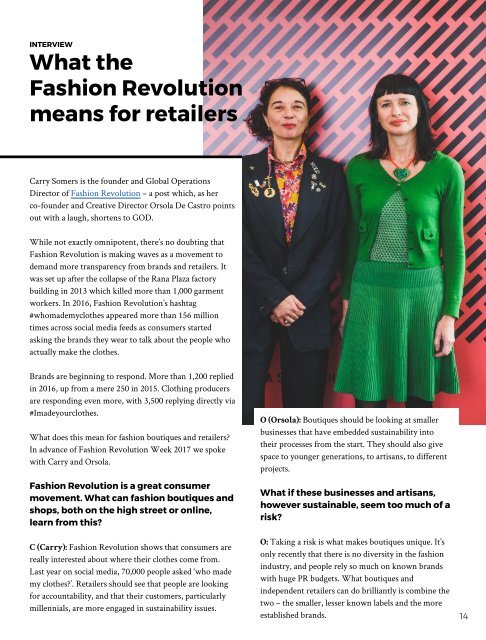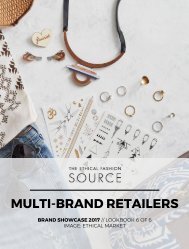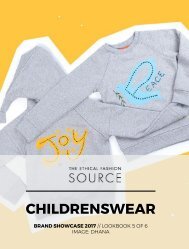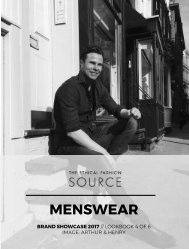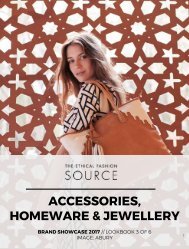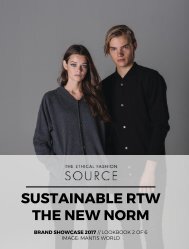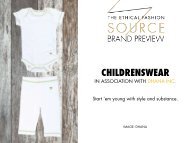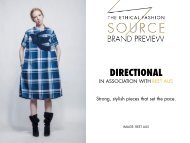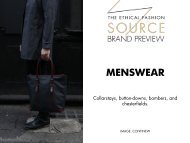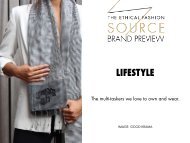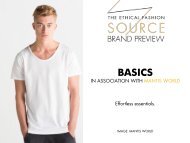Brand Showcase 2017: Directional Womenswear
Lookbook 1 of 6 focusing on luxury, directional womenswear from sustainable brands and designers who are members of SOURCE
Lookbook 1 of 6 focusing on luxury, directional womenswear from sustainable brands and designers who are members of SOURCE
You also want an ePaper? Increase the reach of your titles
YUMPU automatically turns print PDFs into web optimized ePapers that Google loves.
INTERVIEW<br />
What the<br />
Fashion Revolution<br />
means for retailers<br />
Carry Somers is the founder and Global Operations<br />
Director of Fashion Revolution – a post which, as her<br />
co-founder and Creative Director Orsola De Castro points<br />
out with a laugh, shortens to GOD.<br />
While not exactly omnipotent, there’s no doubting that<br />
Fashion Revolution is making waves as a movement to<br />
demand more transparency from brands and retailers. It<br />
was set up after the collapse of the Rana Plaza factory<br />
building in 2013 which killed more than 1,000 garment<br />
workers. In 2016, Fashion Revolution’s hashtag<br />
#whomademyclothes appeared more than 156 million<br />
times across social media feeds as consumers started<br />
asking the brands they wear to talk about the people who<br />
actually make the clothes.<br />
<strong>Brand</strong>s are beginning to respond. More than 1,200 replied<br />
in 2016, up from a mere 250 in 2015. Clothing producers<br />
are responding even more, with 3,500 replying directly via<br />
#Imadeyourclothes.<br />
What does this mean for fashion boutiques and retailers?<br />
In advance of Fashion Revolution Week <strong>2017</strong> we spoke<br />
with Carry and Orsola.<br />
Fashion Revolution is a great consumer<br />
movement. What can fashion boutiques and<br />
shops, both on the high street or online,<br />
learn from this?<br />
C (Carry): Fashion Revolution shows that consumers are<br />
really interested about where their clothes come from.<br />
Last year on social media, 70,000 people asked ‘who made<br />
my clothes?’. Retailers should see that people are looking<br />
for accountability, and that their customers, particularly<br />
millennials, are more engaged in sustainability issues.<br />
O (Orsola): Boutiques should be looking at smaller<br />
businesses that have embedded sustainability into<br />
their processes from the start. They should also give<br />
space to younger generations, to artisans, to different<br />
projects.<br />
What if these businesses and artisans,<br />
however sustainable, seem too much of a<br />
risk?<br />
O: Taking a risk is what makes boutiques unique. It’s<br />
only recently that there is no diversity in the fashion<br />
industry, and people rely so much on known brands<br />
with huge PR budgets. What boutiques and<br />
independent retailers can do brilliantly is combine the<br />
two – the smaller, lesser known labels and the more<br />
established brands. 14


